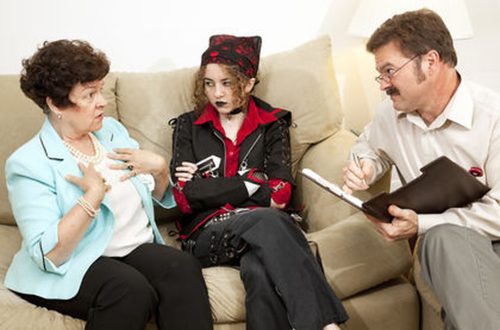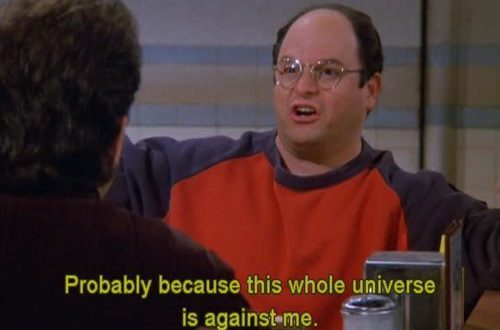The more I scroll through my feed, the more obvious it becomes that Twitter is often used to push agendas, create headlines, and spark outrage. Incidences of celebrities putting unsuspecting peers on blast through accusations meant to question the target’s morality are happening with increasing frequency. These provocations create alliances through which the moral positions of others are assumed in the absence of facts about anyone’s personal positions. It makes sense celebrities would use Twitter for this purpose because they have enough followers to spread their word. But it’s an irresponsible tactic that presumes a person’s character can be summarized on the basis of an association, and allows for “followers” to lazily fuse with someone else’s thoughts in the absence of their own independent thought. People will blindly align themselves with those they admire to feel at one with them, even if their faux alliance perpetuates the use of social media microaggression.
The term Microaggression was coined by Professor Derald Sue of Columbia University to describe subversive verbal or nonverbal acts of racial bias. For example, if you have ever clutched your purse or wallet as you passed a person of color, you’ve committed a microaggression. More recently, it has been used to reference similar acts toward other groups such as women (an assertive man is confident, but an assertive woman is a “bitch”), and the LGBTQ community (a man who likes rom-coms is “gay”, and conversion therapy can “pray gay away” or change orientation through aversion therapy). These are microaggressions because of what the behaviors infer, and because they are not as obvious as epithets, slurs, or acts of violence.
Social media is the perfect platform for microaggression because it provides a tower from which microaggressors can take random pot shots at their unsuspecting targets. A recent example is a Twitter beef started by Ellen Page(Juno) toward Chris Pratt (Guardians of the Galaxy, Parks and Recreation) regarding his involvement with the Zoe Church, which models itself after Hillsong, a church whose global pastor, Brian Houston released a statement in 2015 that read, “Hillsong Church welcomes all people, but does not affirm lifestyles.” Page’s logic is that both church models are entirely the same, but a recent Huffington Post piece stated Zoe Church’s position on the LGBTQ community is unclear. In a series of television appearances, Pratt has spoken openly about the church that supported him through his divorce from actress, Anna Faris.
Through Twitter, Page formulates the following syllogism: Zoe Church is supposedly anti-LGBTQ, Chris Pratt is a member of Zoe Church, therefore, Chris Pratt is anti-LGBTQ. It is faulty logic rooted in the assumption that if a person belongs to a church, he subscribes to every tenet. Based solely on that, any of my gay or trans clients would assume I am aligned against them because I am a member of the Catholic church. On this issue, I disagree with the Church of Rome, and hope my personal position doesn’t cost me a comfortable afterlife. Pratt has since asserted that not only is Zoe Church inclusive, but his values, not a specific group or organization, dictate his beliefs. One of the inherent ramifications of responding on Twitter in support of Chris Pratt, is an automatic assumption a supporter of a man who attends a church accused of discrimination is now also discriminatory.
The potential consequences of Page’s accusations toward Pratt are assumed guilt of the moral crimes in social media’s court of public opinion, also known as the outrage crowd. These are people who react, rather than think, and who latch on to the thoughts of others as opposed to formulating their own opinions. Instead of asking questions, these people assume they know the answers, and from behind the veil of a Twitter handle, they pounce, resulting in divisive, hostile territory.
We live in a time of unprecedented scrutiny, and social media is the means through which influential people attempt to colonize our subconscious with their messages. Anyone can be accused of anything at anytime, and public perception is that whatever one disgruntled person says about another is automatically true. Ellen Page could probably have had a private conversation with Pratt during which she first inquired about his personal beliefs before explaining her concerns about his involvement in a church that might be anti-LGBTQ. However, should she have chosen that route, her name would not be imbedded in a recent series of headlines sure to garner the attention she hoped to derive. Whereas one to one conversation creates an opportunity for understanding, public outing creates only reaction.
None of this is to suggest Page has a personal axe to grind with Chris Pratt. It is obvious her hope was to shine a light on a church suspected of discriminating against a community struggling for the social acceptance they deserve. But her series of “tweets” quickly turned into a game of “he said, she said” when Pratt came not only to his own defense, but to Zoe Church’s as well. A situation was quickly created in which people formulated opinions in no way based on fact or personal experience, but on who they liked more.
There is no way to regulate microaggression because free speech prevails, and Twitter slander is not a formal crime. Based on the fact Page’s tweets remain on the site, they violated no terms of usage. Hopefully her multitudes of followers will not violate the terms of common sense and informed judgement, and will think for themselves. Without sound judgment, public accusations like the one levied against Chris Pratt by Ellen Page will successfully perpetuate an antisocial media used solely for the purpose of pushing agendas, and creating division.





